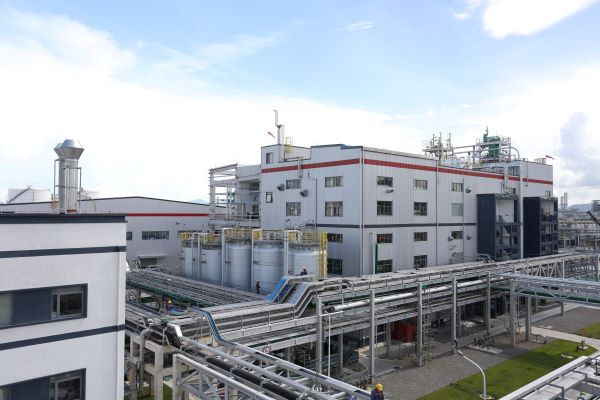Halogen-free solutions offer manufacturers an alternative to antimony trioxide-based flame retardants which face volatile market conditions

Clariant completes its CHF 100 million investment in the Daya Bay facility, with the second production line fully operational in November. This expanded capacity strengthens Clariant's ability to meet growing demand for more sustainable flame-retardant solutions in Asia and globally, particularly in the rapidly expanding e-mobility sector.
"Our continued investment in the Daya Bay facility underscores our commitment to supporting the significant growth of engineering plastics applications in e-mobility and electrical & electronic segments," said Angela Cackovich, Business President Adsorbents & Additives and EMEA and Member of the Executive Steering Committee.
"With this world-class manufacturing plant, we strengthen our leading position in innovative and more sustainable fire safety solutions while improving our ability to serve customers across the Asia Pacific region with reduced delivery times and tailored solutions."
In addition, Clariant announces the expansion of its Exolit OP flame retardant portfolio with two new high-performance solutions specifically designed for polybutylene terephthalate (PBT) applications in e-mobility.
The new Exolit OP flame retardants address two critical challenges in e-mobility applications. Exolit OP 1242 (TP) offers exceptional hydrolysis stability, while Exolit OP 1266 (TP) provides a stable comparative tracking index (CTI) of 600 V even after extended storage periods. Both products meet the UL 94 vertical test with V-0 classification down to a sample thickness of 0.4 mm at dosing levels of 15-20%.
These innovations are particularly significant as the e-mobility industry transitions to higher voltage systems of 800 V and above, requiring materials with superior electrical insulation properties and long-term stability under demanding conditions.
The new halogen-free flame retardants offer manufacturers an attractive alternative to traditional systems based on antimony trioxide (ATO), which has experienced dramatic price increases and supply chain volatility in recent years.
"Our new Exolit OP solutions not only deliver superior technical performance for e-mobility applications but also help manufacturers reduce their exposure to antimony market fluctuations," explained Mariano Suarez, Head of Marketing Additives at Clariant. "By offering halogen-free and ATO-free alternatives that don't require fluorinated polymers like PTFE, we are enabling our customers to meet growing OEM environmental requirements while maintaining reliable supply chains."
Subscribe to our newsletter & stay updated.